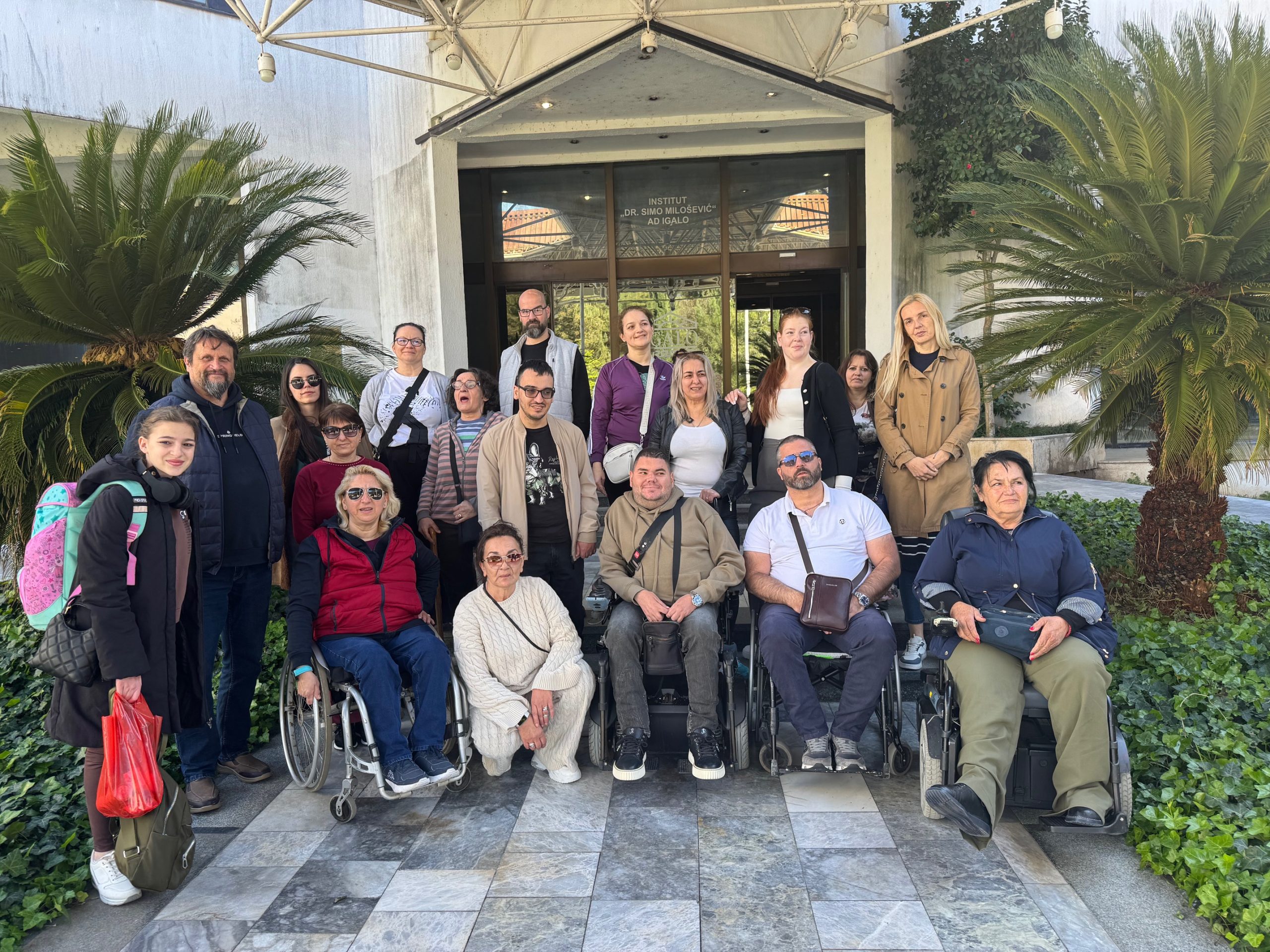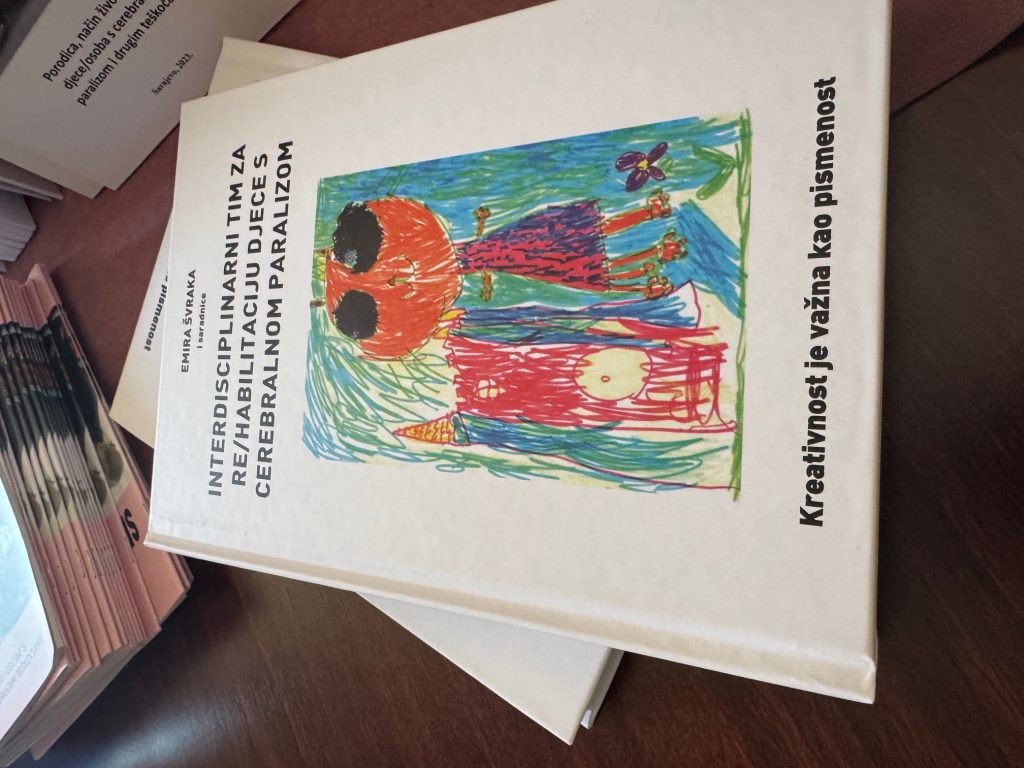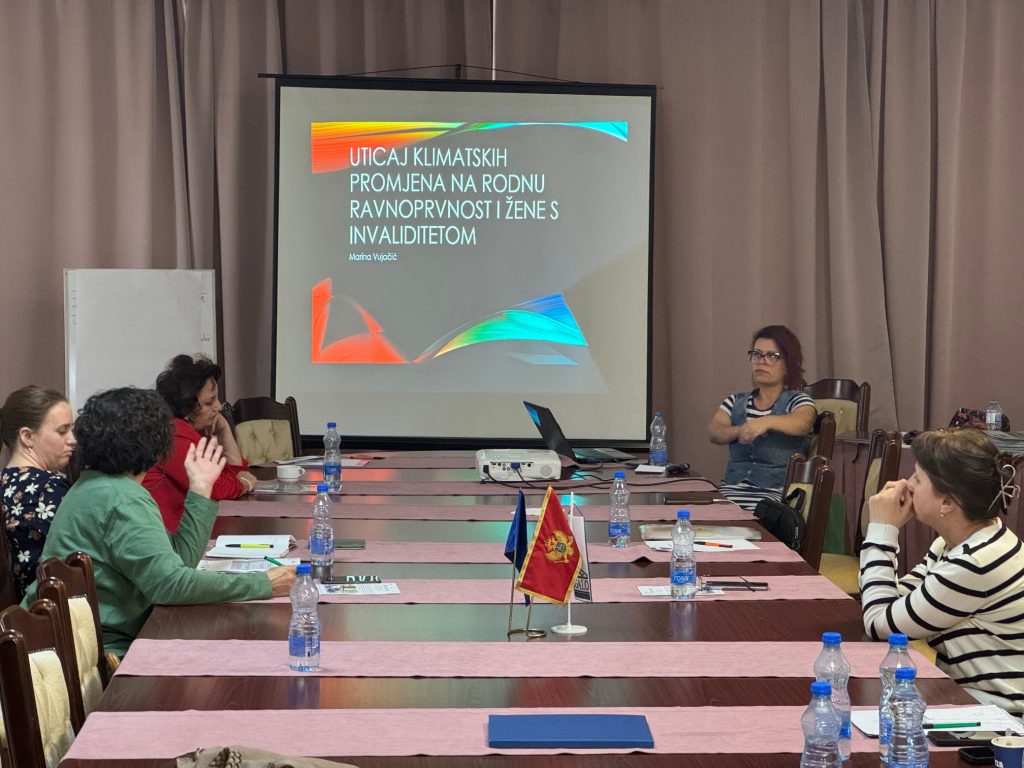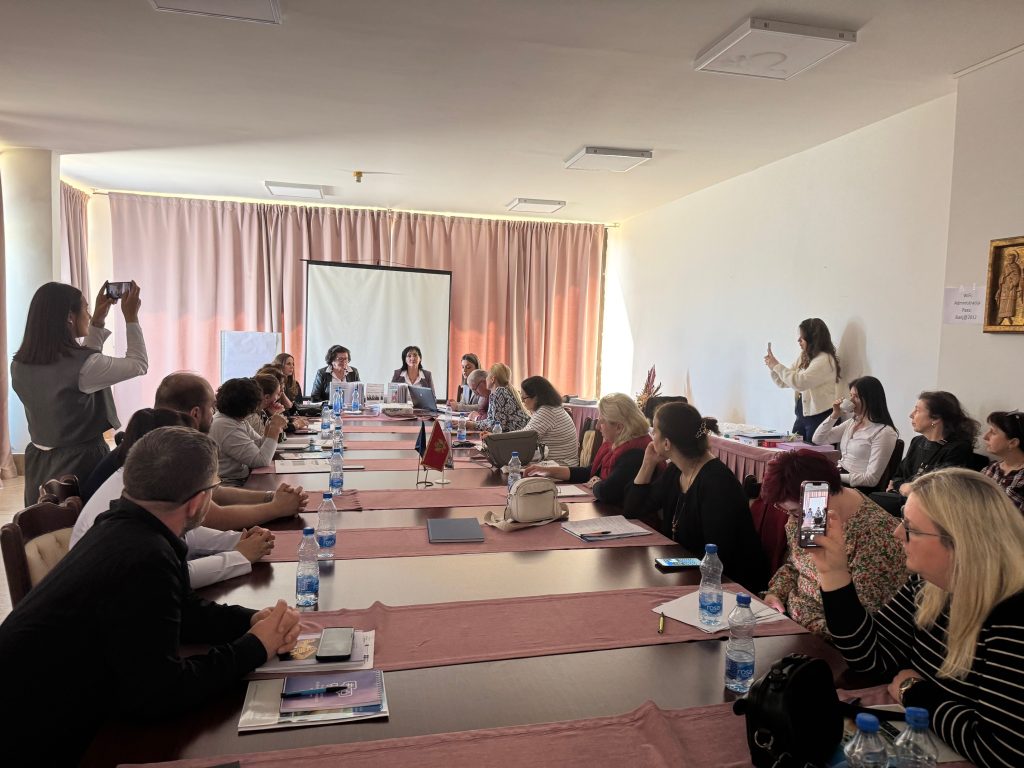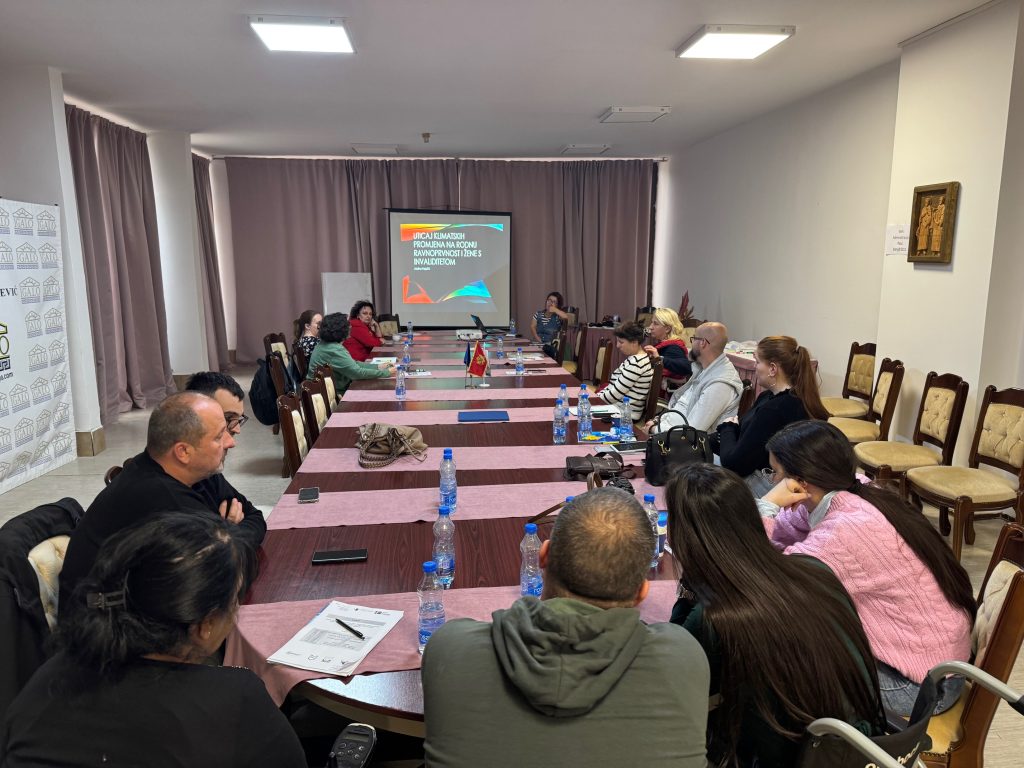April 4–7, 2025
Location: Institute Dr. Simo Milošević, Igalo, Montenegro
As part of the second phase of the Gender Budget Watchdog Network regional project—supported by the Austrian Development Agency (ADA) and the Swedish International Development Cooperation Agency (SIDA)—a transformative three-day training was held from April 4 to 7, 2025, in Igalo, Montenegro.
The event was organized under the umbrella of the project “Strengthening the Resilience of Women with Disabilities to the Impacts of Climate Change in the Western Balkans Region,” implemented by NGO MOZAIK Nikšić in partnership with the Association of Associations of Persons with Cerebral Palsy of the Federation of Bosnia and Herzegovina and the Center for Independent Living of Persons with Disabilities.
Gathering representatives from disability organizations in 20 cities across the region, experts from the Institute Dr. Simo Milošević, the Faculty of Medicine – Applied Physiotherapy Study Program, and other civil society and academic stakeholders, the training created a collaborative and empowering environment for inclusive learning and exchange.
Participants explored the foundations of gender and gender identity, with special attention to the ways in which gender norms and roles intersect with disability. They also examined gender equality indicators, and learned how to use statistical data to advocate for more inclusive public policies.
A major focus was placed on understanding and engaging in public policy planning cycles, where participants explored entry points for influencing the development of gender-responsive and inclusive policies. These concepts were brought to life through practical exercises and interactive group work.
One of the most impactful parts of the training was a dedicated workshop on gender-responsive budgeting (GRB), which introduced tools and techniques that can help organizations influence how public funds are allocated—ensuring that budgets work for women with disabilities and account for the realities of climate change.
A feminist approach to disability and gender equality was another central theme, challenging moral and charity-based models that still persist in many parts of the region. These outdated models were examined critically, paving the way for development-based, rights-focused approaches that center the experiences of women with disabilities.
Another key part of the training addressed the impact of climate change on gender equality, with a focus on how climate-related challenges—such as natural disasters, heatwaves, or resource scarcity—disproportionately affect women with disabilities. Discussions explored the urgent need for climate policies and emergency response systems to be inclusive, accessible, and responsive to intersecting vulnerabilities.
The training also delved into intersectional and multiple discrimination, especially in the context of climate crisis situations, where social exclusion is often amplified for women with disabilities due to poverty, rural isolation, and lack of accessible infrastructure.
As a highlight of the event, participants had the opportunity to engage with the newly released publication by Prof. Dr. Emira Švraka, titled “Interdisciplinary Team for the Re/Habilitation of Children with Cerebral Palsy – Creativity is as Important as Literacy.” The book celebrates the power of inclusive and creative rehabilitation and sparked meaningful dialogue among participants and practitioners.
The final day featured in-depth case study discussions, where participants reflected on real-life examples of how gender-responsive budgeting and inclusive planning have been—or could be—applied in their own communities.
This regional training marked a powerful step forward in building the capacities of women with disabilities as leaders and advocates for climate resilience. It underscored the importance of inclusive approaches to policy-making and budgeting in the face of growing environmental challenges. Participants left the event not only better informed but deeply inspired to drive change in their local and national contexts.

